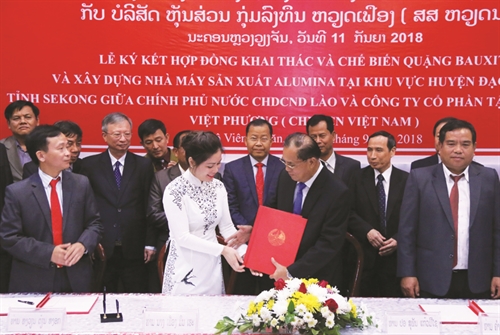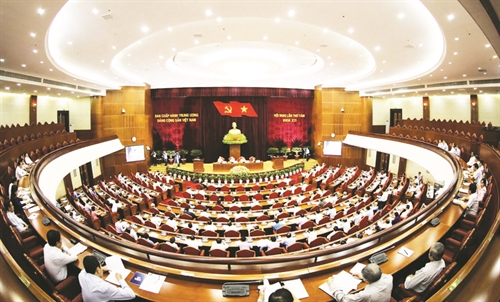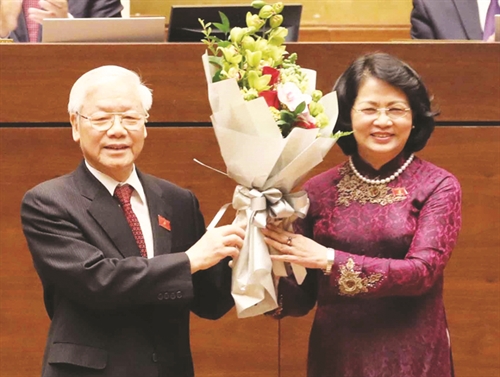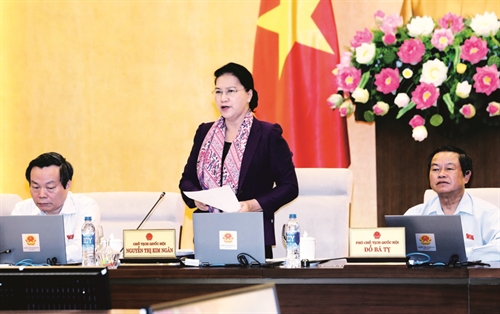Law on Forestry
With a wider scope of regulation than the 2004 version, this 108-article Law prescribes the organization of chain-based links of forestry activities from forest protection, development and utilization to forest product processing and trade, and thereby affirming the position of forestry as a particular techno-economic sector covering all forest-related goods production and service provision activities.
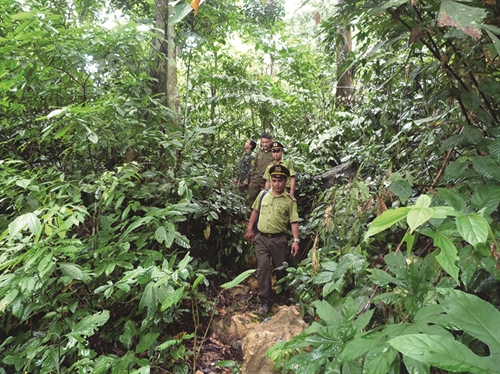 |
| Rangers conduct patrol in Na Hang district, Tuyen Quang province __Photo: Quang Dan/VNA |
Under the law, natural forests and forests planted with state funds which have or have not yet allocated to organizations, households, individuals or communities will belong to all-people ownership with the State acting as the owner’s representative. Meanwhile, organizations, households, individuals and residential communities may own production forests which are planted with their own capital or transferred, donated or inherited from other forest owners in accordance with law.
Planning Law
With 59 articles arranged in six chapters, the Planning Law, adopted in 2017, regulates the formulation, appraisal, decision on or approval, publicization, implementation, evaluation and adjustment of master plans in the national system of master plans.
Under the Law, the national system of master plans consists of national-level master plans, regional master plans, provincial master plans, master plans of urban areas and rural areas, and master plans of special administrative-economic units, of which national overall master plans will serve as a basis for formulation of all lower-level master plans.
Together with the Planning Law, two laws revising planning-related regulations also came into force on January 1. Of them, one amends 11 laws and the other makes changes to 37 laws concerning planning work.
Law on Cyber Security
Composed of 43 articles, this Law provides activities of protecting national security and ensuring social order and safety in cyberspace, and defines responsibilities of related agencies, organizations and individuals.
The Law requires the storage of certain data in Vietnam for a period prescribed by the Government. This requirement applies to all domestic and foreign enterprises providing services in telecommunications networks or the Internet or providing added-value services in cyberspace in Vietnam that collect, exploit, analyze and process data on personal information, data on relationships of service users and data created by service users in Vietnam.
Law on Fisheries
Compared to the previous version, the new Law adds a chapter on Vietnam’s fisheries resources surveillance force with a view to establishing the highest legal foundation for organization and operation of this force.
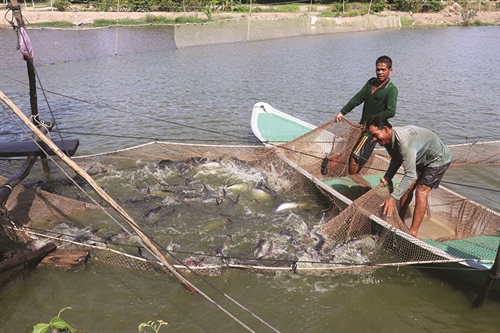 |
| Farming Tra catfish for export in Tam Nong district, Dong Thap province__Photo: Nguyen Van Tri/VNA |
The 105-article Law affirms that the fisheries resources surveillance force is a specialized force performing the function of enforcement of Vietnam’s law on exploitation and protection of the country’s fisheries resources and relevant treaties of which Vietnam is a member. This force is composed of the central fisheries resources surveillance force, fisheries resources surveillance forces in coastal provinces and cities, and fisheries resources surveillance forces in provinces which will be established to meet the requirement of protection of fisheries resources and other resources of localities.
Law on National Defense
With 40 articles, this Law institutionalizes the Party’s guidelines and viewpoints on all-people national defense, people’s war, and people’s armed forces.
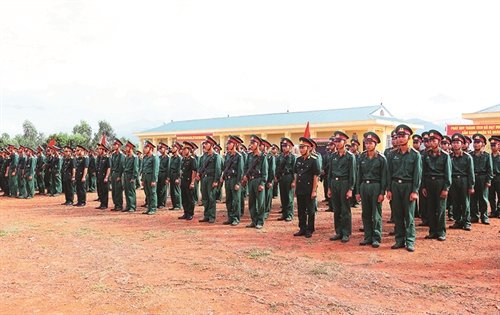 |
| New soldiers of Division 304, Army Corps 2 in Vinh Phuc province, at the 2018 oath-taking ceremony__Photo: Quang Quyet/VNA |
Under the Law, the people’s armed forces of Vietnam are composed of the People’s Army, the People’s Public Security, and the Militia and Self-Defense force. In which, the People’s Army acts as the core in performing national defense tasks; the People’s Public Security also acts as the core in defending national security, maintaining social order and safety, and fighting crimes. Meanwhile, the Militia and Self-Defense force is a mass armed force.
Law on Denunciations
In order to facilitate the exercise of citizens’ right to denunciation, the 67-article Law simplifies the current five-step process for settling a denunciation into a four-step one.
Under the Law, the time limit for settlement of a denunciation is 30 days after such denunciation is accepted. For a complicated case, this time limit may be prolonged only once for no more than 30 days. For a particularly complicated case, this time limit may be extended twice with each extension not exceeding 30 days.
Worthy of note, a denunciator may withdraw the whole or part of his denunciation contents before the denunciation settler makes a conclusion on denunciation contents, but must bear responsibility in case he abuses the denunciation for the purpose of slandering, offending or harming the denounced person.
Law on Survey and Mapping
Under this Law, each organization operating in the survey and mapping sector will be granted a single license for one or several of survey and mapping services on the list of those subject to licensing. Such a license will be valid nationwide for at least five years and may be extended.
To obtain a survey and mapping license, an organization must be an enterprise or a non-business unit having survey and mapping functions and tasks. The person in charge of survey and mapping techniques of the organization must possess a university or higher degree in topography and cartography and have at least five years’ working experience in at least one of the survey and mapping activities of such organization. In addition, such person may not concurrently take charge of survey and mapping techniques of another organization.
Amended Law on Physical Training and Sports
The 79-article Law is the first-ever law that provides for sports betting.
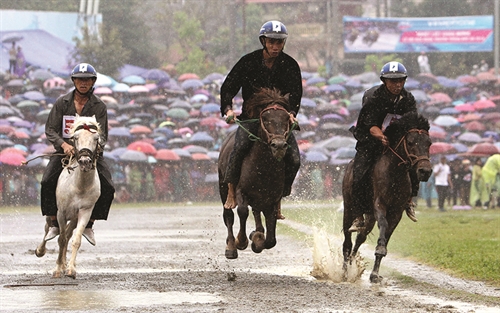 |
| The 2018 traditional horse race in Bac Ha district, Lao Cai province__Photo: Quoc Khanh/VNA |
Accordingly, sports betting is a form of prize entertainment whereby bettors predict the results of selected sport events.
The Law says that enterprises may conduct sports betting business only after obtaining a certificate of eligibility for sports betting business. The currency used in sports betting and prize payment is Vietnam dong.- (VLLF)


